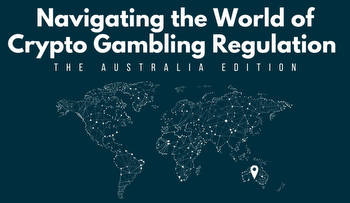Cryptocurrency as a Financial Service or Gambling Activity?
In the UK, a House of Commons Treasury Committee is opposing government plans to regulate crypto-like financial services. The committee says crypto should be regulated like gambling so that consumers aren’t lulled into a perception that crypto is safe.
The committee’s views, so far, are just opinions and the UK Treasury seems set on regulating the cryptocurrency sector by applying existing financial legislation.
Such opposition within a high-tech country like the UK, where many crypto firms operate, is disappointing for the sector.
The Regulatory Dilemma
Cryptocurrency advocates are keen to see digital currencies perceived as just that, currency, and financial investment products akin to conventional equivalents.
However, the sector still isn’t defined, controlled, and regulated in the same way as traditional financial products and infrastructure and there are many “bad actors,” and company and exchange collapses to reference.
The Committee’s Concerns
Harriett Baldwin, MP, and chair of the Treasury Committee said in a statement:
“With no intrinsic value, huge price volatility and no discernible social good, consumer trading of cryptocurrencies like Bitcoin more closely resembles gambling than a financial service, and should be regulated as such.”
Baldwin adds, “By betting on these unbacked ‘tokens,’ consumers should be aware that all their money could be lost.”
She’s not wrong, although similar can be said for the stock market as well as the gambling sector.
A spokesperson for the UK Treasury gave a response to CoinDesk:
“Risks posed by crypto are typical of those that exist in traditional financial services and it’s financial services regulation – rather than gambling regulation – that has the track record in mitigating them.”

So far, the objecting committee has issued a report with its recommendations which included regulations, guidelines for consumer protection and measures for Anti-Money Laundering (AML). What, if any, legislative response is expected is unclear, but the news has ruffled feathers in the crypto community who argue on the benefits of technology and the opportunities for the UK economy.
Regulating Crypto as Gambling
CoinDesk, in January 2023 outlined the emerging idea of regulating crypto as gambling quoting Fabio Panetta of the European Central Bank:
“Regulation should acknowledge the speculative nature of unbacked cryptos and treat them as gambling activities.”
The problem is that cryptocurrencies are digital coins that underpin many exciting and beneficial blockchain projects as well as some unscrupulous ones. Blockchain technology, and indeed digital currencies, do offer massive potential in a digitally transforming age.
On the face of the issue regulating crypto as gambling means that crypto projects can’t promote tokens as investments. Instead, we could see responsible gambling messages, per CoinDesk, such as:
“Play Bitcoin responsibly. Remember, it’s just a game.”
Understanding Risks and Regulations
Such gambling regulation has the potential to slow the mainstream adoption of cryptocurrency and potentially the development of blockchain technologies. But, for some of those who are betting with crypto or gambling on crypto projects and NFTs as a chance to turn a quick buck with a sharp investment any added warnings could prevent losses and issues that can arise from irresponsible gambling and unmitigated risk.
It’s estimated that hacks, scams and other exploitation result in losses to the tune of around $100 million a month. Cryptocurrency exchange failures have resulted in sudden losses of hundreds of millions of dollars.
Whatever regulatory outcomes are, for crypto, crypto gambling or online gambling generally, it is important that consumers do understand any risks and their own country’s regulations.



































